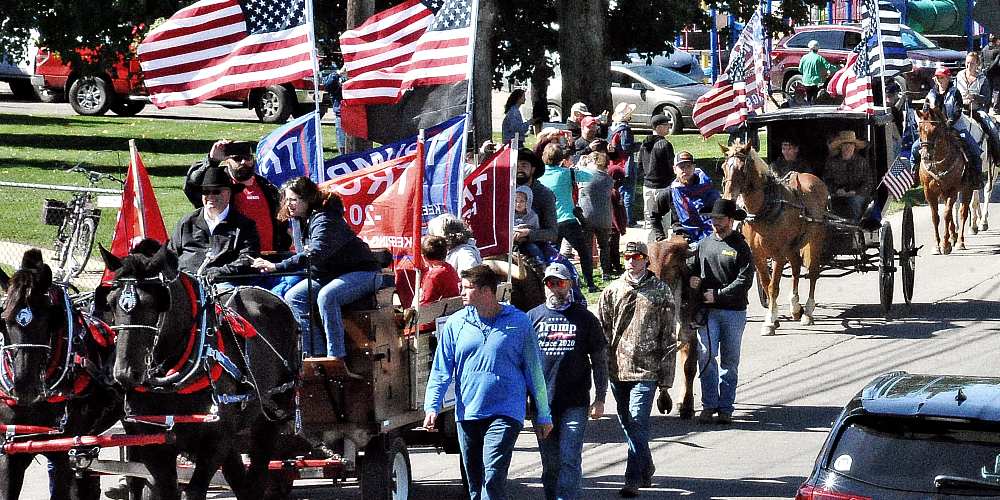The upcoming presidential election in Pennsylvania might hinge on an unexpected demographic: the Amish community. Traditionally known for their reluctance to engage in political activities, recent political strategies have identified the Amish as potentially key voters, especially in light of their significant numbers in Lancaster County, one of Pennsylvania’s most conservative areas.
Reports from the communities in both Pennsylvania and Ohio indicate this election is very different from any past presidential election. This is due in large part to attacks on Amish autonomy, including their freedom to cooperate and trade natural food products.
Political operatives, particularly those aligned with former President Donald Trump, have been actively campaigning within these communities, employing methods that respect the Amish way of life. This includes handwritten letters, personal visits, and avoiding modern communication tools like emails or online ads, which are contrary to Amish practices. This grassroots approach aims to connect with the Amish on issues that resonate with their values, such as religious freedom, traditional family structures, and economic policies that favor small, family-owned businesses.
Rep. Lloyd Smucker (R-PA), who grew up Amish, spoke to Fox News about how more Amish had switched from farming to running businesses, and were “becoming much more engaged politically.”
The Amish, not traditionally known for their political involvement, have been approached with messages that align with their conservative values. This outreach is not just about numbers; it’s about understanding and appealing to the Amish’s deep-rooted beliefs in simplicity, community, and faith. However, the engagement with politics is met with varied reactions within the community, where some see voting as a necessary engagement with the outside world, while others view it as contrary to their separation from worldly affairs.
“You have a minority of the Amish who are now farming, agricultural,” Smucker told the outlet. “They’ve run out of land in Lancaster County a long time ago. So, there’s a new generation of Amish who are business owners, they’re running their very successful businesses — some of them are large businesses. And, so they’re becoming much more engaged politically than their parents were.”
With an estimated 44,000 Amish in the Lancaster County area alone, and considering only about half are of voting age, the number of potential Amish voters is significant but not overwhelmingly large. However, in a closely contested state like Pennsylvania, even a small shift could influence the outcome. The community’s growth rate, which outpaces the national average, suggests an increasing political relevance in future elections.
If Trump’s campaign successfully mobilizes even a fraction of these voters, it could tip the scales in Pennsylvania, a battleground state crucial for any presidential hopeful. This strategy reflects a broader recognition of how niche demographics, when aligned with broader political movements, can play disproportionate roles in election outcomes.
The Amish in Pennsylvania represent more than just votes; they symbolize a shift in political strategies towards communities often overlooked or deemed uninterested in politics. While their impact might be more symbolic than definitive in this election, the effort to engage them highlights evolving political landscapes where every community, no matter how small or reclusive, is seen as a potential ally in the quest for electoral success. This approach not only challenges how we think about voter turnout but also how political campaigns adapt to cultural diversity within the electorate.
Article partially generated from corporate media reports.








